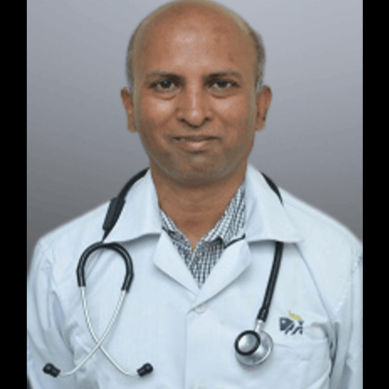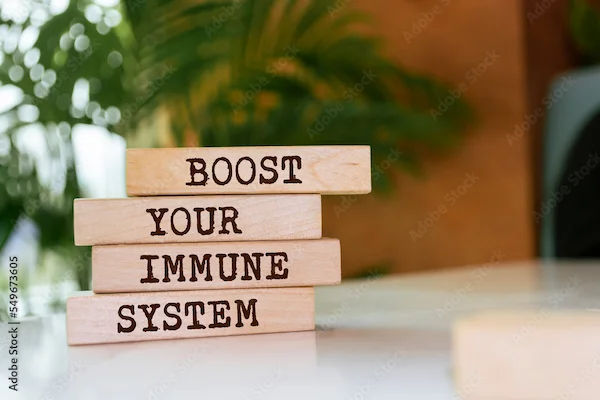Signs of an Unhealthy Heart to Recognise
Know the causes of an unhealthy heart and how to recognise them at an early stage. Learn to improve heart health with useful lifestyle changes.


Introduction
Your heart is one of the most vital organs in your body, working tirelessly to pump blood and keep you alive. However, many people ignore early warning signs of heart trouble until it becomes a serious problem. Recognising the symptoms of an unhealthy heart early can help you take action and prevent complications.
In this article, we’ll discuss the common signs of an unhealthy heart, what causes them, and how you can take steps to improve your heart health.
Common Signs of an Unhealthy Heart
1. Chest Pain or Discomfort (Angina)
One of the most well-known signs of heart trouble is chest pain or discomfort. This can feel like Pressure, tightness, or squeezing in the chest, a burning sensation and Pain that spreads to the arms, neck, jaw, or back
When to worry? If the pain is severe, lasts more than a few minutes, or comes with sweating, nausea, or shortness of breath, seek emergency help immediately, as it could be a heart attack.
2. Shortness of Breath
If you find yourself gasping for air after mild activity or even while resting, it could indicate poor heart function. The heart may struggle to pump blood efficiently, leading to fluid buildup in the lungs.
3. Fatigue and Weakness
Feeling unusually tired, even after adequate rest, can be a sign of heart disease. When the heart doesn’t pump blood effectively, your muscles and organs don’t get enough oxygen, making you feel exhausted.
4. Swelling in Legs, Ankles, or Feet (Oedema)
Fluid retention in the lower body can occur when the heart isn’t pumping efficiently, causing blood to pool in the veins. This leads to swelling, especially in the legs and feet.
5. Irregular Heartbeat (Arrhythmia)
A fluttering, racing, or skipping heartbeat may indicate an irregular heart rhythm. While occasional palpitations are normal, frequent episodes should be checked by a doctor.
6. Dizziness or Fainting Spells
If your heart isn’t pumping enough blood to the brain, you may feel lightheaded or faint. This can be a sign of low blood pressure, arrhythmia, or heart failure.
7. Persistent Cough or Wheezing
A chronic cough with white or pink mucus may indicate fluid buildup in the lungs due to heart failure.
8. Nausea or Loss of Appetite
Digestive issues like nausea, bloating, or loss of appetite can sometimes be linked to poor heart function, especially in women.
Consult Top Specialists for Personalised Tips
What Causes an Unhealthy Heart?
Several factors contribute to heart disease, including:
High blood pressure – It puts extra strain on the heart.
High cholesterol – It leads to plaque buildup in arteries.
Diabetes - increases the risk of heart disease.
Smoking – Damages blood vessels and reduces oxygen supply.
Obesity – Excess weight strains the heart.
Sedentary lifestyle – Lack of exercise weakens the heart.
Poor diet – Too much salt, sugar, and unhealthy fats harm heart health.
Family history – Genetics can play a role in heart disease risk.
How to Improve Your Heart Health?
1. Eat a Heart-Healthy Diet
To get a healthy diet, include more fruits, vegetables, whole grains, and lean proteins, reduce salt, sugar, and processed foods and choose healthy fats like nuts, seeds, and olive oil.
2. Stay Active
Aim for at least 30 minutes of moderate exercise (walking, cycling, swimming) most days.
Even small changes like taking the stairs or walking more can help.
3. Quit Smoking & Limit Alcohol
Smoking damages blood vessels, while quitting improves heart health quickly, and excessive alcohol raises blood pressure, while moderation is key.
4. Manage Stress
To manage stress, practice relaxation techniques like deep breathing, meditation, or yoga.
And get enough sleep (7-8 hours per night).
5. Monitor Your Health
Check blood pressure, cholesterol, and blood sugar regularly. If you have diabetes or hypertension, follow your doctor’s advice.
When to See a Doctor?
If you experience any of the following, consult a doctor immediately:
Severe chest pain
Sudden shortness of breath
Fainting or extreme dizziness
Irregular heartbeat lasting more than a few minutes
Early detection and treatment can prevent serious complications like heart attacks or strokes.
Final Words
Your heart health is in your hands. By recognising warning signs early and making healthy lifestyle changes like eating heart-friendly foods, staying active and avoiding or stopping excess alcohol or smoking. By doing these things, you can protect your heart and live a longer, healthier life.
If you’re concerned about your heart health, Apollo 24|7 makes it easy to consult a cardiologist or book tests from home. Don’t wait—your heart deserves the best care!
Consult Top Cardiologists
Consult Top Specialists for Personalised Tips

Dr. Sunil Modi
Cardiologist
38 Years • MBBS,MD (Med.),DM (Cardio)
Delhi
Apollo Hospitals Indraprastha, Delhi
(25+ Patients)

Dr. Subir Ghosh
Cardiologist
16 Years • MBBS; MD(MED); DM(Cardio)
Ahmedabad
Apollo Hospitals Gandhinagar, Ahmedabad

Prof. Dr. Vivek Gupta
Cardiologist
25 Years • MD, DM, FESC, FEAPCI, FAPSIC,FCSI, FICC, FIC France, FIEIC, FSCAI
Delhi
Apollo Hospitals Indraprastha, Delhi

Dr. Sharad Jain
Cardiologist
21 Years • MBBS; MD(MED); DM(CARDIOLOGY)
Ahmedabad
Apollo Hospitals Gandhinagar, Ahmedabad
(25+ Patients)

Dr. Col V Hariharan
Cardiologist
34 Years • MBBS, MD(Med.), DM (Cardio), FICA FISE FICC
Delhi
Apollo Hospitals Indraprastha, Delhi
(50+ Patients)




